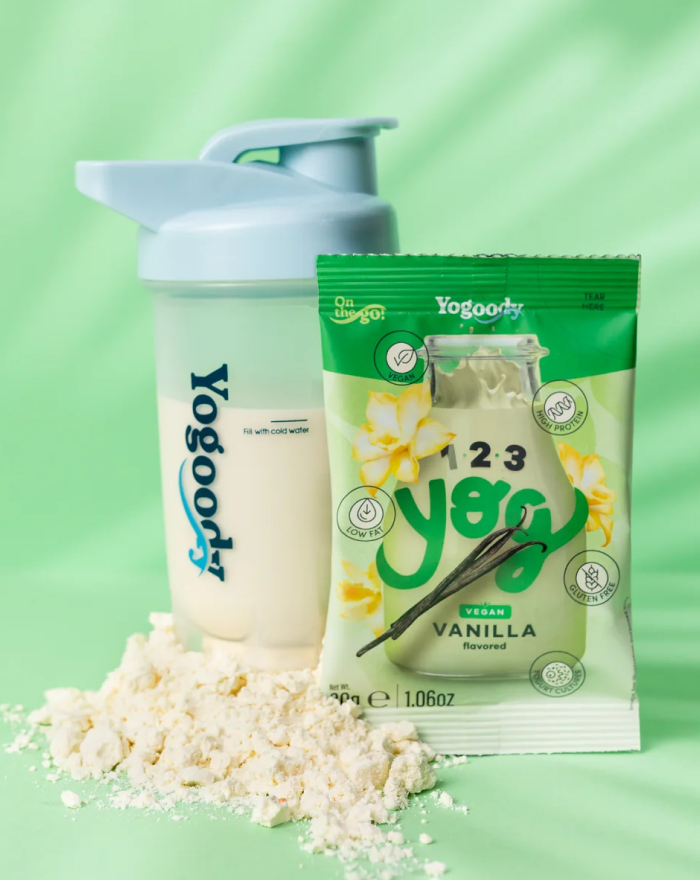

· By Anabela Ferreira
The Importance of Healthy Snacking
Key Points:
- Snacking contributes close to one-third of daily energy intake, with many snacks consisting of energy-dense and nutrient-poor foods.
- However, healthy snacking has been associated with increased satiety, weight management and metabolic effects, and sustained energy levels. Therefore, healthy snacking plays a crucial role in maintaining a balanced diet and supporting overall well-being.
- Choices made regarding snacking are affected by a multitude of factors, and it’s important to evaluate our own snacking behaviour (when, why and what).
- To improve your snacking habits, try to plan ahead your snacks, be aware of your food choices and try to balance them to promote balanced nutrition and sustained energy.
Snacking has become an integral part of our modern lifestyle. Whether it's a mid-afternoon pick-me-up or a pre-workout fuel, snacks provide us with more energy and help us control hunger during the day. However, not all snacks are created equal. Choosing healthy snacks is vital for maintaining a balanced diet and supporting overall well-being. In this article, we will explore the importance of healthy snacking and provide tips for making nutritious snack choices.
Should I Eat in Between Main Meals?
Choices made regarding snacking are affected by a multitude of factors on the individual level (physiologic needs like hunger, or psychological cues), but also on social (eating patterns), and environmental dimensions (like food availability, and location). [1, 2] Since our motivations to snack can vary substantially, snacks have been associated with both weight gain and maintaining weight, as well as with a lower or higher diet quality.
However, in general, healthy snacking has been associated with:
- Increased Satiety, and Weight Management: satiety is the feeling of fullness that persists after eating and is an important factor to suppress overconsumption. Overall, some whole foods that have been associated with the promotion of satiety without considerably increasing overall energy intake, include options that are high in protein (ex. yogurt) and fibre (whole grains, nuts, fruits). [2]
- Metabolic Effects: Some studies indicate that consuming food more often throughout the day improves lipid concentrations and blood pressure. [1]
- Sustained Energy Levels: Healthy snacks can provide a steady source of energy throughout the day. Choosing snacks that combine complex carbohydrates, fats, and protein can help stabilize blood sugar levels (preventing “energy crashes”) and promote sustained productivity.
- Nutrient Intake: Snacking is an opportunity to incorporate additional nutrients into our diet. Choosing nutrient-dense snacks, such as fresh fruits, vegetables, yogurt, whole grain snacks and nuts, ensures we guarantee our daily nutrient requirements.
Snacks can be a regular and important part of a healthy diet, but if you’re unsure of your own options, try to consider your snacking behaviour and evaluate how snacks fit into the overall eating plan. Follow these steps and ask yourself:
- Why? If snacking occurs frequently, determine if you are truly hungry or eating because of an emotional state (bored, stressed, tired, angry).
- What? Decide which snack choices will satisfy you (eases hunger and is enjoyable). Consider whole foods mentioned above, but also keep in mind the portion size (should be enough to satisfy but not so much that it interferes with your appetite for a meal or add too much energy).
How Can I Improve my Snacking Habits?
Some studies suggest that snacking contributes close to one-third of daily energy intake, with many snacks consisting of energy-dense and nutrient-poor food products. [2] Although it’s usually perceived that these small meals have a minor impact on our overall diet, it’s contribution to our daily nutrient intake is meaningful.
These are our tips for healthy snacking:
- Plan Ahead: Prepare snacks in advance to avoid unhealthy options when you feel hungry. Pack convenient, portion-controlled snacks, such as fruits, vegetables (cut into sticks), nut mixes, whole grain bread with low fat cheese, etc., to have on hand.
- Choose Whole Foods: Select whole foods as snacks, rather than food products with a lower nutritional quality (generally with higher sugar and fat content, and low fibre).
- Balance Macronutrients: Include a combination of macronutrients in your snacks to promote balanced nutrition and sustained energy. Pair a carbohydrate source (such as whole-grain crackers or fruit) with a protein source (such as Greek yogurt or hummus) or a healthy fat source (avocado or nuts).
- Mindful Portion Control: Be mindful of portion sizes when snacking because even healthy snacks can contribute to an excessive energy intake. If necessary, use small bowls or containers to control portion sizes and avoid mindless eating.
- Hydration: Remember to stay hydrated throughout the day. Sometimes, feelings of hunger can be thirst in disguise. Keep a reusable water bottle with you and sip on water regularly.
Healthy snacking plays a crucial role in maintaining a balanced diet and supporting overall well-being. By choosing nutritious snacks, we can sustain energy levels, improve focus, manage weight, and ensure adequate nutrient intake. With planning, focus on whole foods, and by choosing some high protein convenient shake such as Yogoody Protein, we can make snacking a healthy and enjoyable part of our daily routine.
References:
- Hess, J.M., S.S. Jonnalagadda, and J.L. Slavin, What Is a Snack, Why Do We Snack, and How Can We Choose Better Snacks? A Review of the Definitions of Snacking, Motivations to Snack, Contributions to Dietary Intake, and Recommendations for Improvement. Advances in Nutrition, 2016. 7(3): p. 466-475.
- Njike, V.Y., et al., Snack Food, Satiety, and Weight. Advances in Nutrition, 2016. 7(5): p. 866-878.



